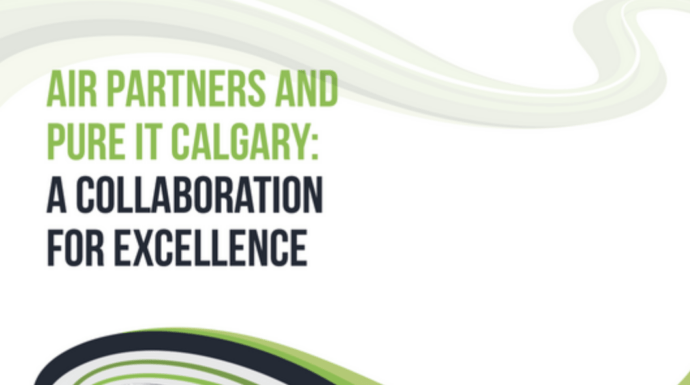Lessons Calgary Oil & Gas Companies Can Learn from The Colonial Pipeline Cyber Attack
In early May, the United States faced a major energy crisis that, for the first time in history, was caused by a cyber attack. On May 7th, 2021, the Colonial Pipeline suffered a cyber attack that completely shut down fuel delivery between the Gulf Coast and the East Coast for almost a week. The 5,500-mile is one of the largest pipelines transporting refined fuel in the country and carries about 45% of the fuel consumed on the East Coast every day.
There are credible reports that the Colonials Pipeline experienced a ransomware attack that ultimately cost the pipeline nearly $5 million in ransom. In the attack, a Russian-based group of cyber criminals called DarkSide managed to penetrate the Colonial Pipeline systems and encrypted the data the pipeline needs to operate. After the company paid the ransom in cryptocurrency, the group provided them with the key to decrypt the data and restore operations.
Cases of Cyber Attacks On the Rise
Top cybersecurity firm Bitdefender is reported that there has been an increase of ransomware attacks targeting businesses and corporations of late. According to their stats, in 1010, there was a 485% increase in reported attacks compared to the previous year. The attacks are coordinated by groups spread worldwide, and the average amount the demand per successful attack is $260,000.
These attackers aim at causing the most damages and losses in every attack. The hackers are seemingly becoming more brazen and targeting high net-worth companies, particularly in industries that have been slow to embrace technology.
Companies in the energy sector in Calgary and Canada should be wary of potential ransomware attacks. It is vital to note that while cases of cyber-attacks are becoming more prevalent and their tools getting more sophisticated, the law is slow to catch up. Every oil and gas company must now prepare for the eventuality of an attack to minimize the impacts of an attack.
What Response to Colonial Pipeline Attack Implies
As soon as the Colonial Pipeline company realized that it had been hit with a ransomware attack, it immediately shut down the pipeline as a precaution. The attackers managed to get away with over 100 gigabytes of data, which it threatened to release online if the company did not pay 75 Bitcoins in ransom.
The losses did not end there. Shortage of fuel in airports ensued, causing the cancellation of flight and sourcing for fuel from other suppliers. The states of Florida, Alabama, North and South Carolina, and Georgia reported fuel shortages for four days.
Little the Government Can Do
All that President Joe Biden could do was declare a state of emergency two days later and admitted that there was little the state could do. There was reason to believe that the DarkSide group of hackers that hacked the Colonial Pipeline had Russian origins. In a frustration that proved there was nothing to be done, President Biden claimed that “Russian authorities have some responsibility in dealing with [the hacking].”
The biggest takeaway in the US government response to the Colonial Pipeline hacking is that there is little governments can do to deter hackers. Oil and gas companies in Canada should also beware that international groups of hackers are virtually untouchable, and there is little that the government can help. The only solution to the ever-increasing cases of cyber-attacks and ransomware is proactive prevention and security.
Is Proactive Security a Viable Solution?
The threat of a cyberattack is constantly hanging over the global oil and gas industry. Luckily computer and cybersecurity firms have come up with proactive malware prevention and remedying systems that can help oil and gas companies mitigate their losses in the event of an attack.
The distribution of gas and oil demand a high degree of convergence and automation of OT and IT technologies. Managed service providers such as Pure IT offer a complete IT systems integration that covers data and system security.
It is not easy to protect oil and gas production and distribution structures from physical and cyber-attacks. This is because a slight error or breakdown of a system could have disastrous consequences, including financial losses and threat to public safety. The Colonial Pipeline hacking and the crisis and losses it caused should be a wake-up call to all companies in the industry to protect themselves better.
More Dangers Abound
While ransomware is the latest and most effective tool hackers use to target oil and gas companies, companies must also prepare for a host of other prevalent attack methods. These include:
- Sabotage of crucial infrastructures such as drilling and refining systems.
- Theft of company, employee, or client data.
- Espionage
- DNS hacking
Many gas companies worldwide, and even in Canada, have suffered various forms of cyberattacks. While some report attacks on their systems, many prefer to ‘handle it’ in-house, often by bargaining the amount of ransom to pay the criminals.
A modern oil and gas company needs to have a robust and hardened infrastructure security solution to deter hackers. Since the cybersecurity field evolves rapidly, installing an antivirus or a firewall is not enough to sustain tight security. A suite of complete managed IT, IoT, and OT services should be backed by an intelligent data security gathering and analysis system that develops its cyber resilience and risk-proofs its assets, revenues, and capital investments.
Conclusion
The Colonial Pipeline cyberattack that forced the shutdown of the pipeline for five days is possibly the most damaging crisis the company has had to face in a while. This is not an isolated case; more and more companies in the oil and gas industry are becoming targets for cybercriminals.
The sad thing is that there isn’t much the governments can do to deter or find these criminals – even when their ransoms are outrageous. The ideal solution to avoiding such a loss should be robust and must cover all the potential attack points in the company software and systems.
Would you like to know more about how the Canadian energy sector can protect itself from cyberattacks? Visit Pure IT today to learn about state-of-the-art cybersecurity services for oil and gas companies in Calgary.








